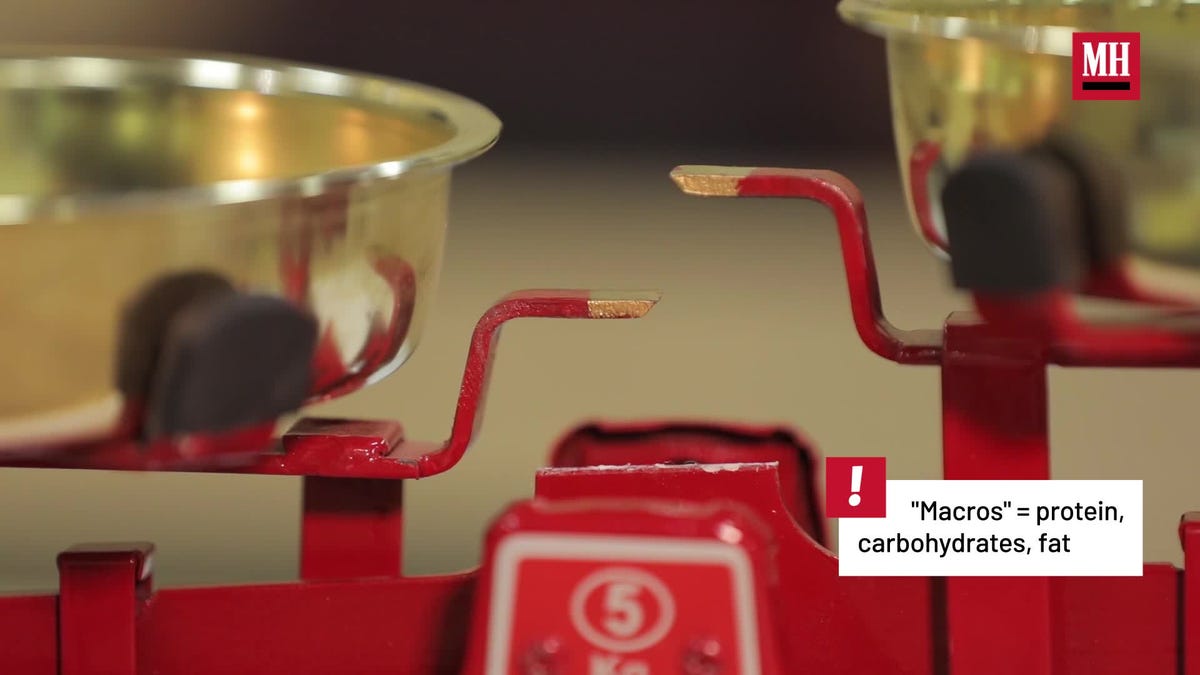IF YOU’VE EVER tried to lose weight, you know that the journey is never linear.
There’s always something getting in the way of your goals—be it a birthday party you drank too much at, a sudden injury that left you out of the gym for a few weeks, or a Vegas vacation with buffets just too good to pass up. And, most of the time, it’s obvious reasons like these as to why you may have gained weight.
But every once in a while, the scale goes up for seemingly no reason. You’re doing everything normally, but, for some reason, that scale refuses to go down, or at the very least, stay level.
Know first that weight fluctuations are common—it’s not unreasonable to see your weight change a few pounds north and south from day to day. Weight depends on several things, including hydration, salt intake, and fluid retention (to see more about that, read this). Typically, that can be anywhere from one to six pounds. But, when you start seeing surges in the double digits, it might cause some reasonable concern.
“Variable weights and even weight gain can be normal, especially during the last two months of the year when candy (from Halloween), and major holidays and holiday parties are frequent,” says Dana Ellis Hunnes Ph.D., M.P.H., R.D., a senior clinical dietitian at UCLA medical center and author of Recipe For Survival. “However, if you are gaining weight at other times of the year, and you have not changed your diet, this can be a cause for concern; as it can be an indication of underlying disease, such as congestive heart failure, liver disease, or kidney disease.”
A handful of things that can cause sudden weight gain, below.
You’re Eating Too Much Salt
Sodium consumption causes your body to retain water. Water has weight and volume. So if you eat a lot of salty food several days in a row, you may suddenly gain weight, he says.
Restaurant food—and especially fast food—tends to be loaded with sodium. So if you’ve recently filled your days with takeout and restaurant meals, that could account for your abrupt influx of pounds.
Keep in mind, however, that plenty of foods you eat at home are sodium-heavy as well. Bread, sandwiches, cold cuts and cured meats are some of the top sources of sodium in the American diet.
You’re Not Eating Enough Potassium
Yes, limiting your intake of sodium is important, but it’s not the only important nutrient when it comes to water weight.
Potassium is like a sodium counter-weight. While sodium helps maintain the fluid around your cells, potassium helps your muscles work and regulates blood pressure. The two go hand-in-hand, and if one is out of whack, overall hydration suffers.
While there’s no recommended daily amount for potassium intake, experts seem to indicate that 3,400 milligrams is a good daily amount to target in men ages 19 and older.
You’re Taking a New Medication
“There are many medications that may cause weight gain,” says W. Scott Butsch, M.D., director of obesity medicine in the Bariatric and Metabolic Institute at the Cleveland Clinic.
In fact, medication may cause up to 15 percent of obesity cases, he says.
Two common culprits: Depression medications (including SSRIs) and heart disease drugs (beta blockers), says Butsch. But prescription sleep aids, painkillers, and even some allergy-blocking antihistamines can cause “a bump in weight,” he says.
Add steroids and testosterone-boosting drugs or supplements to that list, too, Cheskin says. These drugs act on your hormones, which could certainly spur a sudden weight increase. That includes OTC or internet-order supplements, he adds. It doesn’t have to come from your PCP’s prescription pad in order to be a pounds-adding culprit.
If the weight gain is concerning, go back to the doctor who prescribed the medication to you to assess continued use or if any adjustments need to be made. And if it’s OTC or online supplement that you’re taking and you haven’t told your primary care doc that you’ve been taking it, well, it’s probably time that you do.
You’re on Diuretics
As Ellis Hunnes points out, if you are on diuretics for medical reasons, and then they are changed, or you stop taking them, fluid weight gain can result.
“In most of these cases, this is not true weight,” says Ellis Hunnes. “True weight gain would be related to change in diet, change in exercise pattern, change in metabolic rate (thyroid dysfunction), etc.”
Of course, talk with your doctor to make sure this is what’s happening to you if you recently stopped diuretics or changed the amount of these medicines that you take.
You’re Eating More Than You Realize
This one may seem obvious. But people don’t realize how quickly it can happen. If you’ve been boosting your calorie count consistently for a month or two, you could even see a five or ten-pound increase in weight, Cheskin says.
It’s important to recognize that these changes can be subtle. Maybe you’ve started doing weekly happy hours. Or maybe you bought new dishes or bowls, and so your portion sizes have increased without you realizing it. “If you’re eating just 500 calories more a week, over time that can add up,” he says.
Consider keeping a diet journal, using a calorie-counting app, or just nixing out the dietary habit that you feeling like might be the offender to see if you begin to lose weight.
You Switched to a Higher Carbohydrate Diet
If you move from an extremely low-carb plan, like keto, to a diet that contains more grains and starches, you’ll immediately notice a difference on the scale. That’s because carbs are stored in your muscles and liver as glycogen. Each gram of glycogen contains about three grams of water, meaning that a plate of pasta will store extra water in your tissues.
Carbohydrates are important, both in terms of exercise (glycogen is a powerful source of workout fuel) and general health (fiber is a carbohydrate!).
You Recently Lost Weight
It would be really, really nice if lost weight stayed lost. But often just the opposite is true.
“Our body weight and body fat are tightly regulated, and [our system] will act to maintain balance,” Butsch says. Put another way, any pounds you manage to drop are likely to return—even if you keep up your weight-loss routines, he adds.
So if you recently dropped some weight, it’s very likely that you’ll put some of it back on regardless of how much you’re eating or exercising—and that’s completely normal.
You Recently Quit Smoking
Smoking is an appetite suppressant, so when you stop smoking, you’re likely to eat more and thus gain weight. Don’t worry too much though, those who gain weight after stopping don’t typically gain a significant amount, according to a 2019 JAMA Network study.
You Have an Endocrine Disorder
Roughly one in five adults has an under-active thyroid—also known as hypothyroidism—according to the National Institutes of Health. While this condition is much more common in women, Cheskin says plenty of men experience hypothyroidism, which can cause sudden and significant weight gain.
While less typical, some other hormone disorders—namely, Cushing’s disease—can also cause weight gain, Butsch says. If you have one of these endocrine disorders, weight gain probably won’t be your only symptom, he adds. Fatigue, weakness, headaches, problems thinking, and depression or irritability are all signs of these hormone disorders, according to the Mayo Clinic.
You Have Another Chronic Condition/Disease
In addition to improper function of the endocrine system, other chronic conditions or diseases can be the culprit when it comes to sudden weight gain. “If you notice you are gaining one-to-two pounds every few days (or even every day), see your doctor ASAP,” says Ellis Hunnes, adding that this is likely fluid weight, and can be an indication that your kidneys aren’t releasing enough liquid from your body.
“This can be because your heart is not pumping strongly enough (heart failure), your kidneys are failing, or you have liver disease that is causing you to leak fluid into your extracellular space (this can be called third spacing, edema, or ascites, depending on where it is or how it manifests),” Ellis Hunnes says.
You’re Not Sleeping
According to a new study in JAMA Internal Medicine, those who sleep less are likely to eat more, and crave higher-calorie foods. So, if you’ve undergone some lifestyle changes that may prevent you from sleeping, such as having a baby, you may put on a few pounds.

Health Writer
Melissa Matthews is the Health Writer at Men’s Health, covering the latest in food, nutrition, and health.
Perri is a New York City-born and -based writer; she holds a bachelor’s in psychology from Columbia University and is also a culinary school graduate of the plant-based Natural Gourmet Institute, which is now the Natural Gourmet Center at the Institute of Culinary Education. Her work has appeared in the New York Post, Men’s Journal, Rolling Stone, Oprah Daily, Insider.com, Architectural Digest, Southern Living, and more. She’s probably seen Dave Matthews Band in your hometown, and she’ll never turn down a bloody mary. Learn more at VeganWhenSober.com.
Cori Ritchey, NASM-CPT is an Associate Health & Fitness Editor at Men’s Health and a certified personal trainer and group fitness instructor. You can find more of her work in HealthCentral, Livestrong, Self, and others.





Comments are closed.